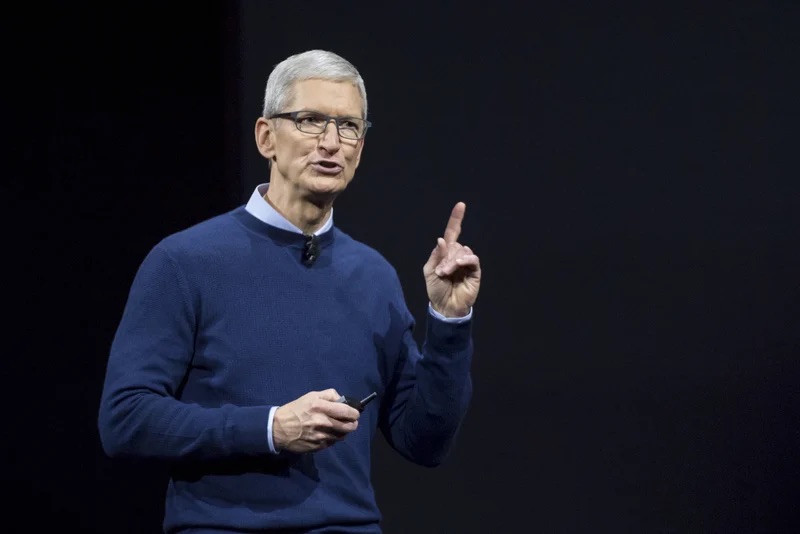
President Donald Trump recently asserted that he has provided assistance to Apple CEO Tim Cook regarding tariff exclusions, amidst ongoing discussions about the impacts of tariffs on U.S. companies and international relations. It’s not like Trump wants to hurt anyone with his tariffs. The damage being done to our small businesses and foreign countries is becoming more severe — day by day.
Since their enactment, Trump’s tariffs have been the source of divisive debates. To the companies and countries that are adversely affected by these tariffs, they are the harsh new realities. Even Trump himself recently admitted that the punitive, retaliatory tariffs we’ve imposed on China have skyrocketed, now totaling up to 125% after the last round of escalation. This escalation has raised the stakes and stress over the U.S.’s long-term economic impact on itself and others. It has ramped up tensions with online.
Unclear Assistance to Tim Cook
In his statement, Trump talked about how he’s personally helped Cook, yet gave no details on how he assisted the Apple CEO. This confusion, combined with the silence around it, leads to speculation. So is Apple really off the hook for all the tariffs hitting hundreds of other products? Right now, smartphones, laptops and processors benefit from a no-action exemption. It is not clear that this exemption will endure, or even what caused it to be formed to begin with.
For one, Trump’s statements just prove that the guy is totally malleable when it comes to tariffs. Yet, in press appearances and testimony, he’s repeatedly telegraphed that he is not intending to radically shift course. This paradox paints a confusing picture for manufacturers such as Apple. They are highly dependent on international supply chains and are experiencing the impacts of increasing costs from tariffs.
Economic Implications and Manufacturing Solutions
Yet the debate over tariffs goes far beyond specific firms and their needs, affecting the economy as a whole. The White House is deeply interested in finding ways to bring manufacturing processes back to the U.S. 6, the Department is seeking to lessen the adverse effect of the tariffs. That’s what Trump thinks is a realistic alternative, but such a transition would take a hugely increased level of investment and strategic foresight on the part of businesses.
Tensions are flaring between the U.S. and its trading partners, most notably China. As you can imagine, this atmosphere creates an already shaky ground of the state of our economy. The current hostilities may risk spiraling out of control, complicating U.S. alliances and increasing global uncertainty and volatility. Manufacturers are on their own to figure out how to steer clear of these stormy seas, all while trying to stay profitable with increasing costs and uncertainty.
Trump’s response to inquiries regarding smartphones, including those produced by Apple, has been vague, leaving many to speculate about the future of technology products under his administration’s tariff policies. The temporary leeway granted by the Trump administration doesn’t negate the need for answers to these pivotal questions. Until when, and under what qualifications will exclusions in the future be determined?
What The Author Thinks
While the intentions behind Trump’s tariff policies may seem geared toward protecting American businesses, the growing complexities and uncertainties around these tariffs are creating more problems than solutions. The ambiguity surrounding exclusions and the lack of clarity regarding their long-term applicability are leaving businesses like Apple in limbo, unsure about the future of their operations and profitability. Until these questions are addressed with concrete, predictable policies, the real winners from these tariff exemptions may be the ones who can best navigate the chaos, while the broader economy suffers from the lack of consistency.
Featured image credit: FMT
Follow us for more breaking news on DMR
